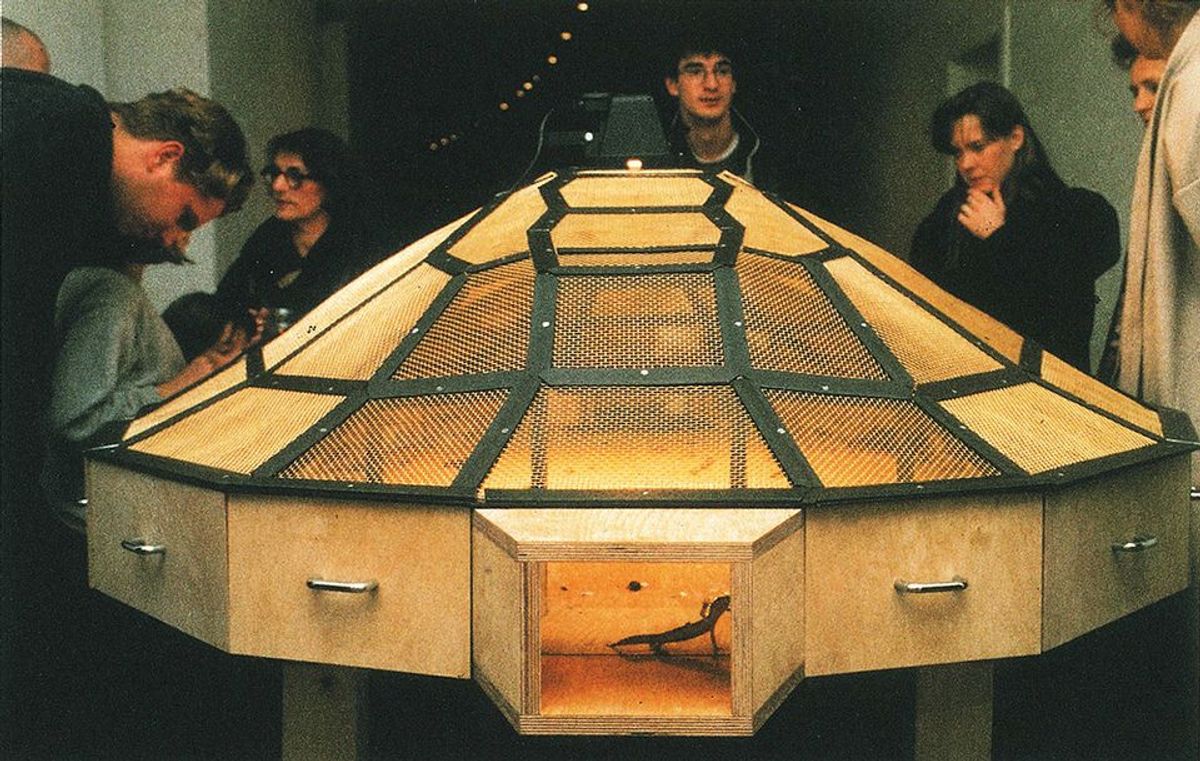The Guggenheim Bilbao is planning to show two of the three controversial works of Chinese contemporary art that the Solomon R. Guggenheim Museum in New York removed last year after pressure from animal rights activists. The Spanish outpost will be the second venue to host the touring exhibition Art and China after 1989: Theater of the World (11 May-23 September in Bilbao), organised by the Guggenheim in New York, where it closed in January. The show is due to travel to the San Francisco Museum of Modern Art in November.
The exhibition surveys the conceptual art practices of two generations of Chinese artists between 1989, the year of the Tiananmen Square massacre, and 2008, when Beijing hosted the Olympic Games. Almost a fortnight before it opened in New York last October, the Guggenheim announced the withdrawal of three contentious works featuring animals—conceived as symbolic critiques of oppression and globalisation in China. Citing “explicit and repeated threats of violence”, the museum said it was acting “out of concern for the safety of its staff, visitors and participating artists”.
The works included the title piece, Huang Yong Ping’s installation Theater of the World (1993), in which live insects and reptiles fight and eat each other within a caged enclosure. Xu Bing’s ten-minute video A Case Study of Transference (1994) documents a performance where two pigs, stamped with nonsense texts in Chinese and English, copulated in front of an audience. The seven-minute video Dogs That Cannot Touch Each Other (2003) by Peng Yu and Sun Yuan shows four pairs of pit bulls chained to facing treadmills, charging in vain to attack one another.
In consultation with the artists, the curators eventually altered the displays so the monitor for Xu’s film was left blank, only the title screen of Sun and Peng’s video was visible and the cage in Huang’s installation lay empty. Xu and Huang both wrote new artist’s statements to accompany their works. This compromise, hailed as a victory by animal rights groups, was criticised by some as self-censorship.
Despite the controversy, the Guggenheim Bilbao intends to include Theater of the World, from the collection of the still-unbuilt Guggenheim Abu Dhabi, in the opening gallery of its version of the show. Press materials describe Huang’s installation as “central to the exhibition narrative”. In a statement to The Art Newspaper, the museum says it “has taken thoughtful steps in accordance with local regulations regarding the presentation of [the work]” and that “trained professionals will oversee the care of the insects and reptiles throughout the run of the exhibition”.
A Case Study of Transference, which the Guggenheim in New York purchased in March with funds given by an anonymous donor in honour of the exhibition, will also go on view in Bilbao, screened in full. However, Dogs That Cannot Touch Each Other, the work that attracted the most criticism last year, will not appear. It will be replaced by another installation by Sun and Peng, Freedom (2009), which invites visitors to watch through a peephole as a high-pressure hose thrashes inside a large steel cube.
Asked whether the Bilbao team is taking special measures to interpret the two remaining works or to counter possible animal rights protests, the museum says it will “incorporate didactic materials throughout the galleries and is providing specific wall texts and audio-guide entries”.


